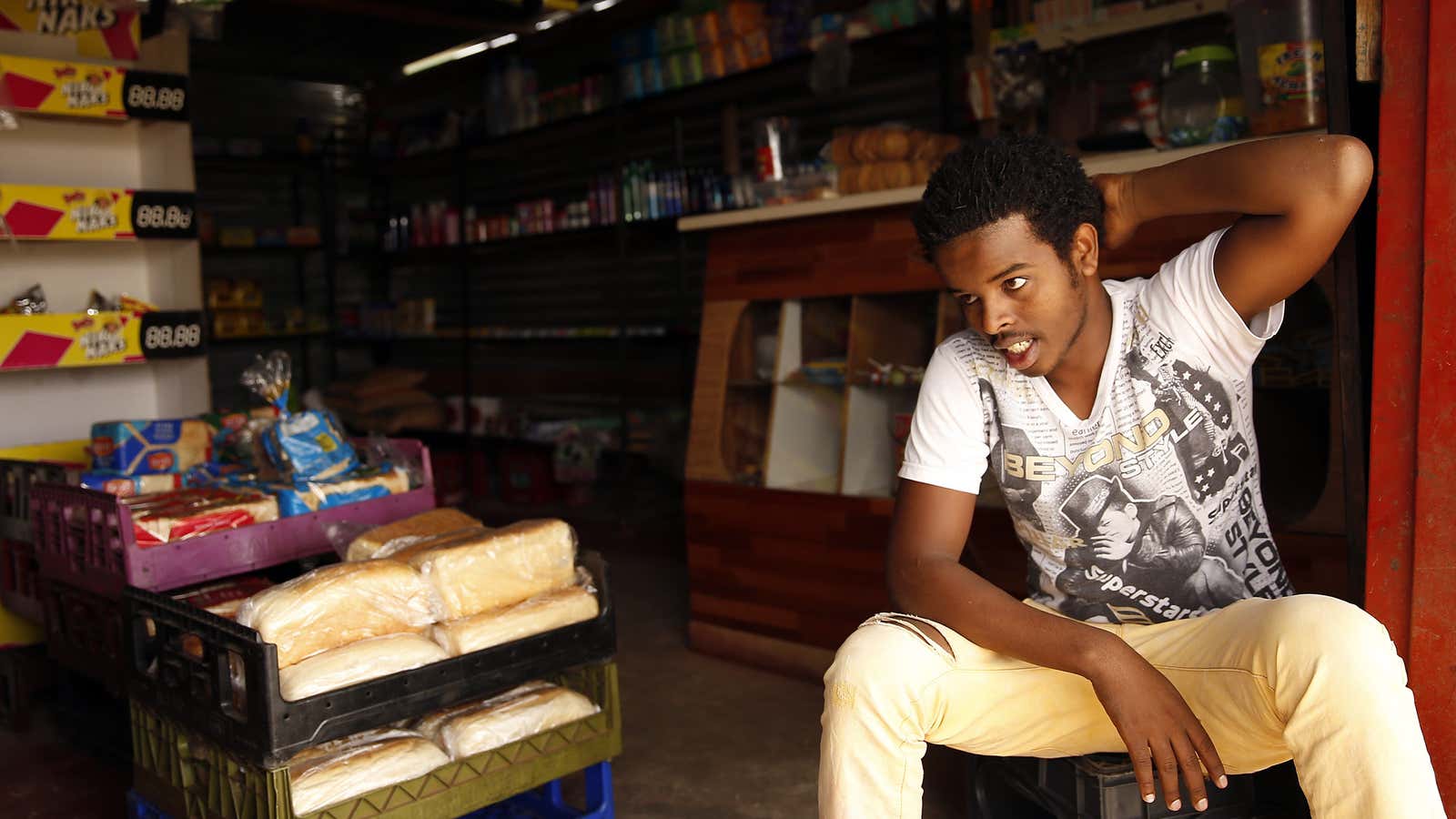Two months after the xenophobic attacks that shook South Africa, the Competition Commission – the country’s anti-trust regulator–wants to know if small foreign retailers are behind the decline of South Africa’s local retailers.
While the inquiry (pdf) is set to probe the grocery retail sector as a whole, the Competition Commission argues that there’s a difference in the performance of foreign-owned and local small retailers. This, says the Commission, has created the perception foreigners are more successful than their local counterparts.
There’s nothing wrong with the need to “examine the dynamics of competition”, what is worrying to some is the insinuation small foreign retailers are to blame for the decline of South African-owned small stores and the local informal economy.
Earlier this year, after the outbreak of xenophobic violence–meted out on mostly Somali, Ethiopian, Bangladeshi and Pakistani retailers–South African minister of small business development, Lindiwe Zulu, implored small foreign retailers to share their trade secrets to avoid any further harassment.
“Foreigners need to understand that they are here as a courtesy and our priority is to the people of this country first and foremost. They cannot barricade themselves in and not share their practices with local business owners,” she said.
No dark arts, just smart business practices
Zulu’s statement suggests that small foreign retailers have a secret treasure trove of business practices–one they are not willing to share with their South African competitors.
But research on the business models and practices of small foreign retailers disproves Zulu’s sentiments, and the Competition Commission’s insinuation of uncompetitive behaviour.
Vanya Gastrow, a researcher from the African Centre for Migration in Johannesburg, published her case study on the economics of small traders in South Africa two years ago. Titled “Somalinomics”, Gastrow’s study outlined the trade practices of Somali traders in South Africa.
Her study found nothing unsavory about the business practices of foreign small traders.
Instead, savvy business principles are used: most small foreign retailers set a low mark-up to make a high turnover, they locate their businesses highly trafficked pedestrians areas, they open early and close late and have a wider product range.
Customer-focused business practices sets them apart from their South African counterparts–no dark arts or uncompetitive behavior.
Gastrow’s report found Somali retailers invest considerable effort into sourcing low prices for their products, using sourcing techniques like buying in bulk in order to get discounts from wholesalers.
Almost all the Somali traders in the study pool their resources each month to source goods. Each retailer procures specific goods for their store individually but the costs associated with restocking, like transport and labour, are shared.
Another study (pdf) – by the South Africa Migration Programme–found small foreign retailers employ a sizeable number of South African people, women in particular. In addition, they contribute a huge chunk to South Africa’s value-added-tax (VAT), through their large purchases of goods from major South African wholesalers.
